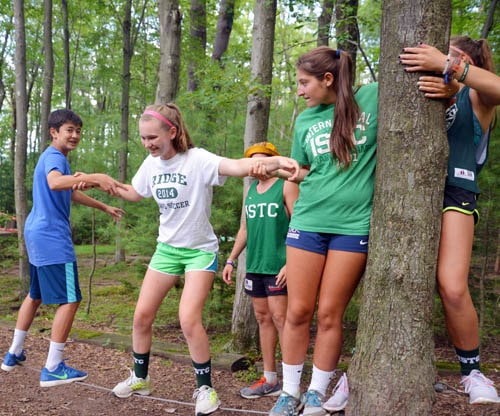Learning is not a spectator sport. Whether you are tackling algebra problems in math or developing a knack for the trombone in your local band, being actively engaged during the learning process is a must for optimal growth. Creating a tangible experience around the subject at hand not only gives you a memory to reflect on later, but also presents you with an opportunity to connect with the material.
For example, think of all the times in school when you lazily slouched in your chair, pretending to listen to your teachers as they covered all of the material. You comfortably daydreamed your way through class while your teachers were under the impression that they successfully taught you a wealth of new information. It’s a win/win situation right? It feels as though it is, until the test comes around. Your happy daydream transforms into a miserable nightmare as you now stare blankly at the test questions. The teacher feels justified since they verbally reviewed all of the information, but you are here left with nothing but the vague memory of these lectures. While it couldn’t hurt to pay more attention in school, the real lesson is that teachers need to invite you to partake in the learning process.
Conversely, summer camp at ISTC strongly encourages experiential learning and gives you skills that will improve your school performance. Playing a variety of sports, building friendships, and taking on responsibilities independently, places you at the center of the camp experience. Without the pressures of tests and grades, you can take these new activities in stride and reap all the benefits stress free. You become more confident by having to express your interests to your counselors, coaches, and cabin mates. You become more cooperative by facing different games with your teammates. You become more creative by taking various approaches to cabin of the week chants and events. The list of qualities is endless and their crossover to the classroom is just as awesome.
Your newfound confident attitude will help you immensely in the classroom. Afraid of asking that question that lingers in the back of your mind because you are worried about how everyone will react? Not anymore. Have an idea for an assignment, but are nervous about taking control of the group? Not a problem any longer. Developing a strong sense of self at camp while learning to cooperate with various types of people will make you a great team player for group assignments and even increase your overall class participation. You’ve gotten so used to trying new things at camp, whether it’s the Yorkshire pudding at dinner or the overhang at the Ropes Course, that it will become second nature in school. You’ll no longer be the daydreamer who drifts through class, but someone who puts forth valuable contributions to the class discussion.
Creating an ingenious chant for cabin of the week events is a tough task, but the reward extends beyond a killer moment with your friends. This creativity actually has applications to the English and history classrooms as well. In realizing that there are many styles of cheers and skits to get the entire recreation department roaring with excitement, you will be able to look at a literary text in an entirely different light. You’ll see multiple sides to a character or several ways to interpret an overall story since you’ve developed the ability to take a step back and take a look at the bigger picture at camp.
Don’t you wish ISTC was labeled a necessary school subject?

